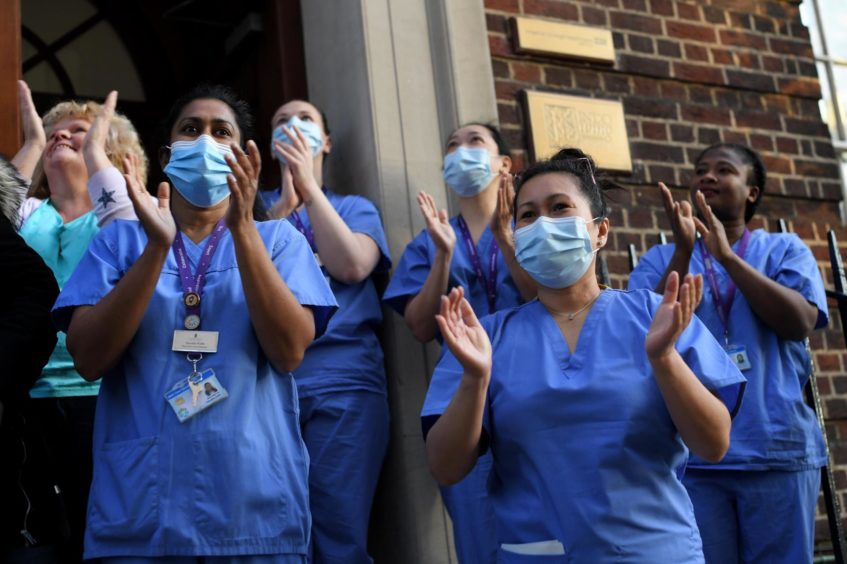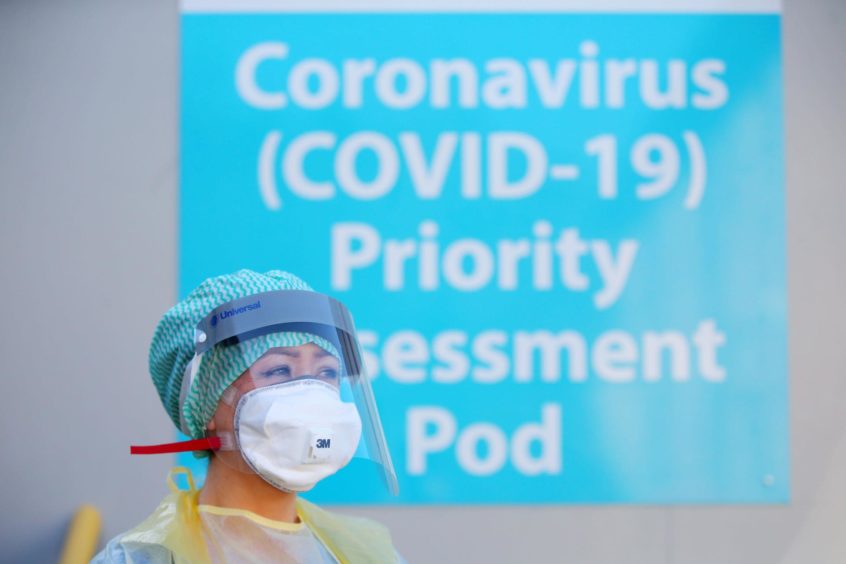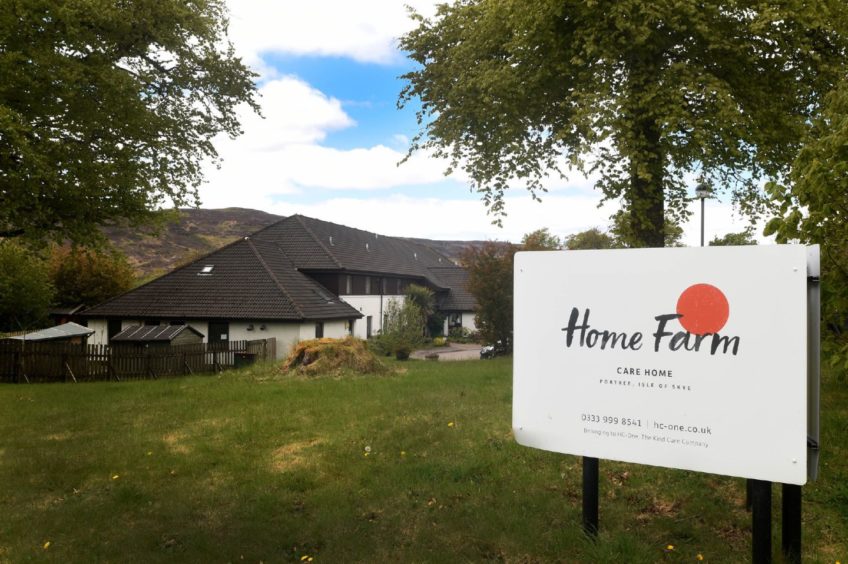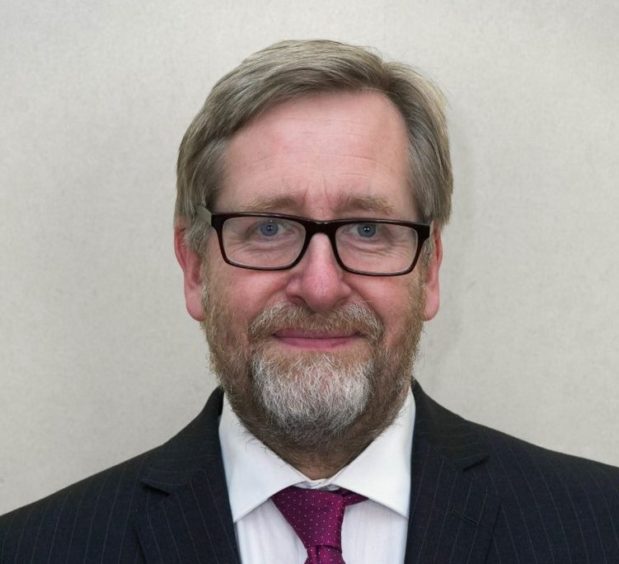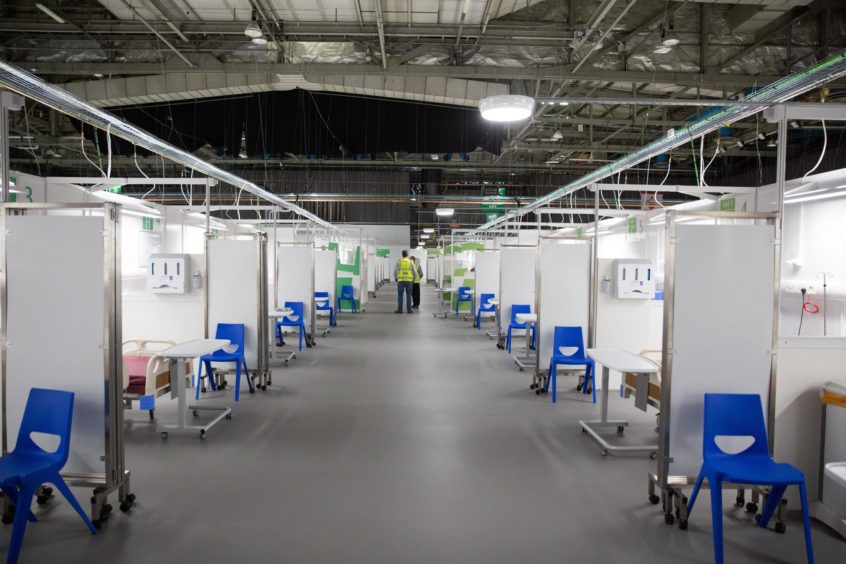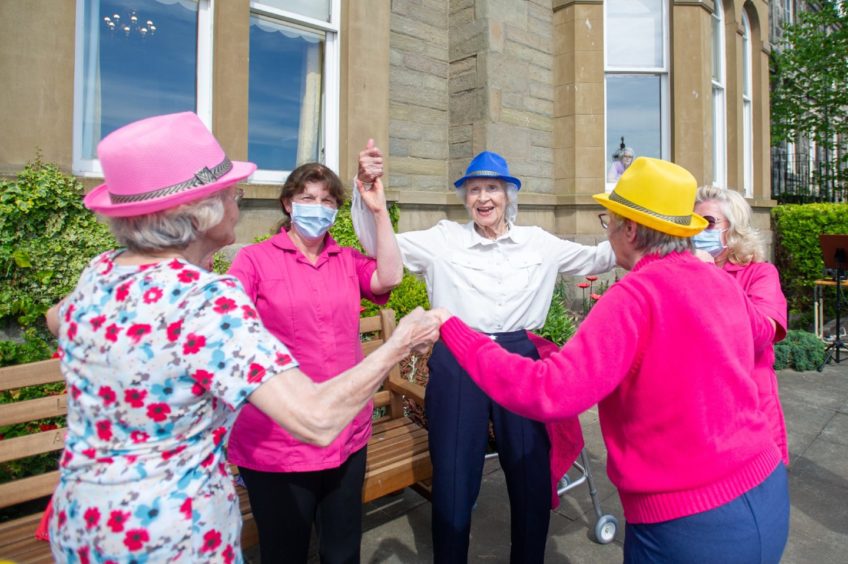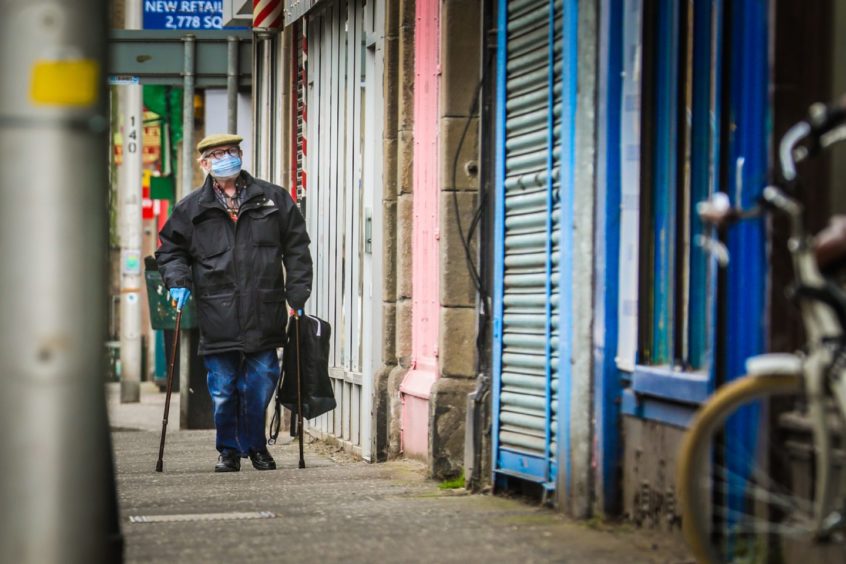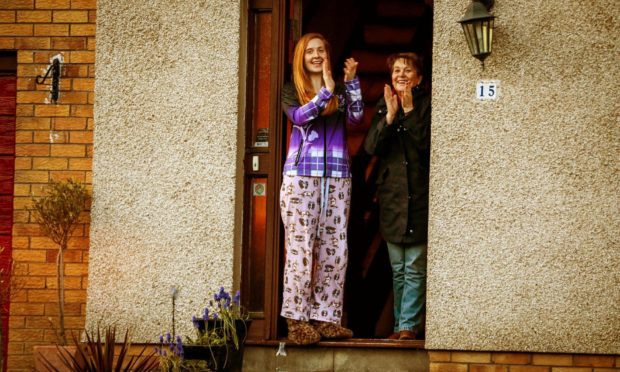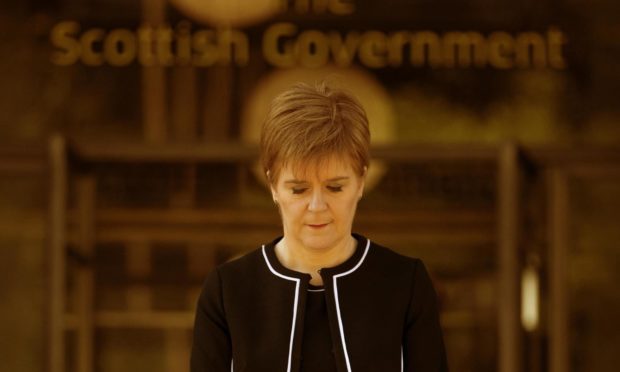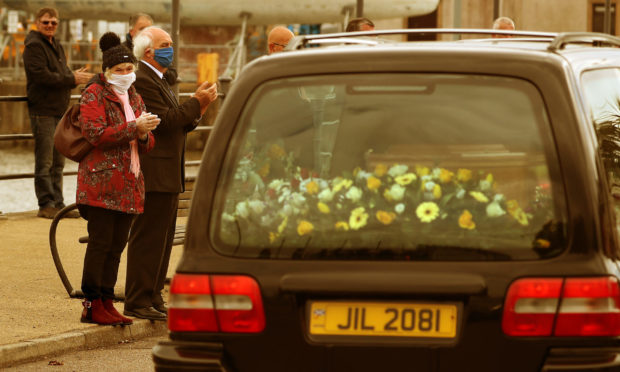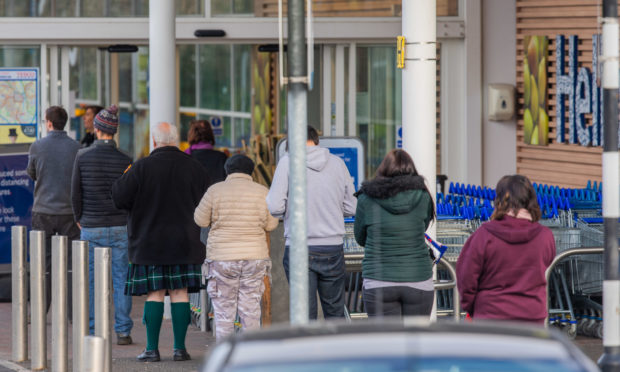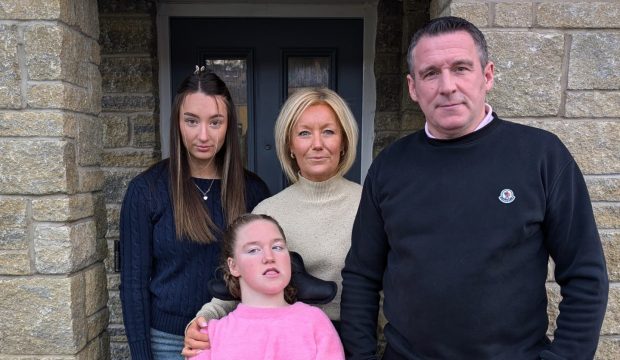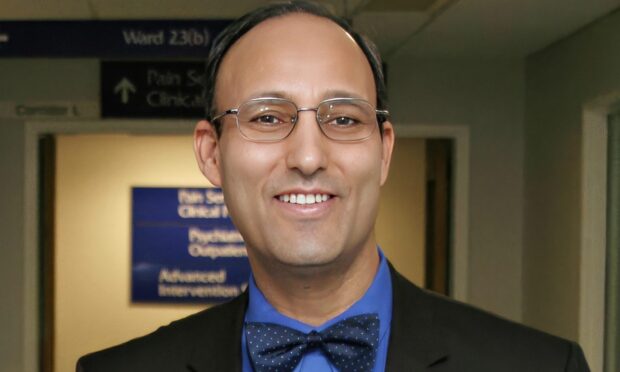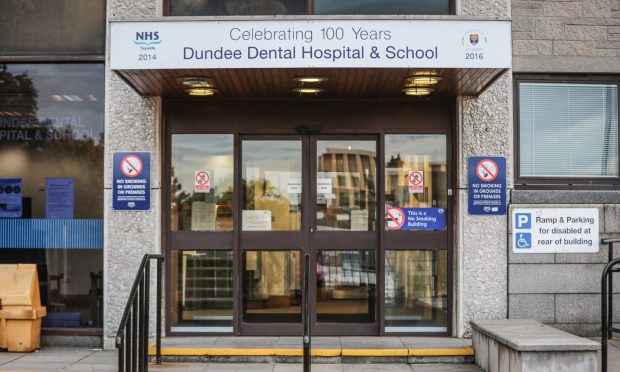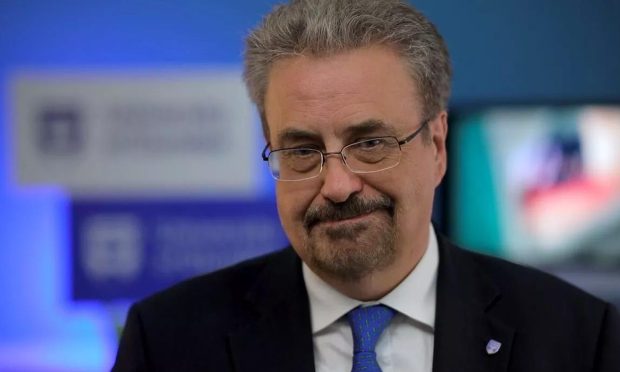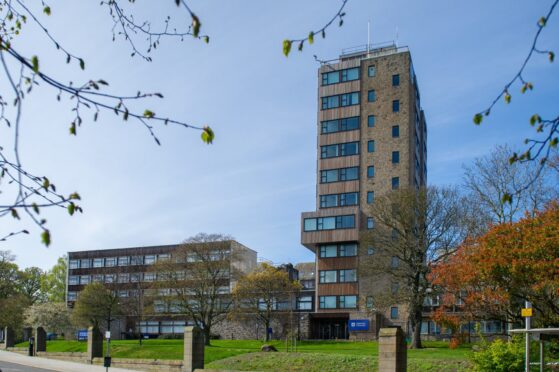Expecting the NHS to return to normal will be “difficult” in the first few years of recovery from the Covid-19 pandemic, one of Scotland’s top doctors has said.
The future of the health and social care sector is certain to be shaped in significant and lasting ways by its experience battling the biggest public health crisis in a generation, with little expectation that the British institution will return to normal in the immediate two to three years post-crisis.

Dr Lewis Morrison, chairman of the British Medical Association in Scotland, said it is important to remember the position the health service was in at the time the virus hit – one of “massive pressure” due to thousands of vacancies across the country for senior doctors, GPs and nurses, coupled with a “lack of resources”.
Getting back to normal will take longer because of the pressures an under-staffed service has faced, Dr Morrison argues, adding there will be some employees nearing the end of their career who will “genuinely ask themselves” if they want to stay on once the crisis has passed.
That’s a very difficult conversation to have with the public, if you have to say to the public your NHS is not actually going to do some of the things it did before for the foreseeable future.
Dr Lewis Morrison
He added: “This is a difficult subject to raise but there is a real question about whether or not – unless you can throw a massive amount of resource at the NHS in the one, two or three-year recovery period from all this – expecting the NHS to do absolutely everything it was doing, running hell for leather, before this kicked off isn’t reasonable, in my view.
“That’s a very difficult conversation to have with the public, if you have to say to the public your NHS is not actually going to do some of the things it did before for the foreseeable future.
“There’s a pecking order here. At the moment the top priority is Covid-19, then the next priority is all the serious underlying diseases such as vascular diseases and cancer that are normally the things that are very high priority in terms of time and seriousness.
“Further down the list, which the public have come to expect, the psycho-social aspect of medicine, which is a strong part of general practice and, which patients expect, will be quite difficult to deliver in the coming months.
“Expecting the NHS to completely go back to doing all the things it did before is going to be difficult post-Covid as we probably spend a year or two coming out of this.
“There is a question as to whether the NHS will have the facilities or resources to deliver everything we did before.”
It seems likely the coronavirus crisis will allow the NHS to enjoy an elevated status in society given the herculean effort of the frontline staff who have risked their lives to care for the country’s citizens.
But will this mean it is awarded top priority and more resources from politicians in the wake of the crisis?
Alas, it might not be so straightforward.
While he would “hope” this would be the case, the BMA Scotland chief acknowledges that politicians will be forced to make choices about where resources will be spent at a time when the UK is likely to enter into a “pretty significant economic recession”.
Dr Morrison added: “It’s a double whammy of health and social care resources being under pressure like they’ve never been under pressure before at a time when the financial envelope that’s available is going to be pretty restrictive due to the macro-economic conditions.
“I think most people anticipate that there are some difficult times ahead.
“From a health service perspective, I think that means we’re going to have to make some choices about where the priorities are.”
‘Fundamental change’ needed
The Royal College of Nursing in Scotland would like, with the support of the public, to ensure governments across the UK do not forget the “professionalism” demonstrated by all nursing staff during the pandemic.
Theresa Fyffe, RCN Scotland Director, said: “The reaction of nursing staff to the pandemic has demonstrated in the clearest way possible how essential the nursing role is.
“But fundamental change is long overdue and, with public support, we will make sure governments across the UK do not forget the professionalism demonstrated by all nursing staff during this pandemic.
“There can be no doubt now about the importance of, and value in, investment in education, nursing posts and nurse leadership across health and social care.
“As we move forward we are confident of building a better future for nursing which truly values the profession and ensures it is an attractive career across all settings.”
The crisis has also highlighted the need for local health and social care partnerships to consider and include all health and care facilities in their area, including independent sector care homes, in resilience planning, Ms Fyffe added.
She said: “Care homes have been at the centre of this crisis and, in moving forward, it is vital that the long-term workforce challenges facing this sector are addressed in a sustainable way.”
Care home deaths: What went wrong?
Headlines in recent weeks have focused on the large proportion of care home deaths, which accounted for 59% of deaths in one week in May, according to figures released by the National Records of Scotland.
Donald Macaskill, CEO of Scottish Care, the representative body of the independent care sector, said the crisis has given an insight into how as a culture the UK is “dominated” by the National Health Service, to a degree that is “harmful and dangerous” and resulted in testing of care home residents and staff “too late in the game”.
He said: “The prioritisation of the NHS, the demand to protect the NHS, the focus on the acute sector and keeping it stable has had a really negative effect on our national response to the pandemic and has certainly contributed to the degree to which social care has not received the focus it needed to receive in order to protect some of our most vulnerable citizens.
“That includes the prioritisation of PPE going to the NHS, which has resulted in critical shortages for care homes and home care.
“The prioritisation of testing in the NHS meant that we didn’t appropriately start testing people in care homes and staff until too late in the game, and also the prioritisation of workforce that even into the pandemic we were getting NHS health boards recruiting care home nurses.
“Those are three examples where the lack of understanding of social care and the overt focus on the NHS has made it really challenging for a response and there has been a tendency, both politically and also in practice, for the NHS to be perceived as riding to the rescue of the poor care home sector who are incompetent and unprofessional.
“Where the reality is, it’s the other way around.”
We built a Louisa Jordan hospital very quickly but we haven’t used half the degree of focus and energy equipping our care home sector.”
Donald Macaskill
Mr Macaskill said the over-prioritisation of the NHS happened across the UK, remarking that politicians looking at countries further ahead in the pandemic, such as Italy and Spain, saw the health systems being overwhelmed and “crudely” made an analysis that was a risk to the British system.
“What they chose not to see in Italy, Spain and France, was that the people who were most impacted were people over the age of 75 and especially those in the care homes and other nursing settings”, he added.
“What these countries have said to us is that if they had had their time again they would have prioritised social care as being just as important as the acute sector and that is from a set of countries where their health system was overpowered.
“We built a Louisa Jordan hospital (field hospital built in case the NHS was overwhelmed) very quickly but we haven’t used half the degree of focus and energy equipping our care home sector.”
However, the Scottish Government has said its testing strategy was based firmly on the advice of senior clinicians and public health experts, which they believe is the “correct one” for Scotland.
A spokeswoman added that guidance was published on March 26, updated on April 25, making clear that social care, as well as the healthcare workforce, was considered a priority for testing.
Looking to the years ahead, Mr Macaskill hopes the pandemic will be a catalyst for change but instead fears a “blame culture” will emerge, with politicians looking for “scapegoats” in the form of the care sector.
The crisis has also shown the importance of integrating health and social care, with the care sector boss echoing the RCN Scotland, in their call to include care homes, including the independent sector, in resilience planning going forward.
He added: “The complete failure of this and previous administrations to support social care financially, and a decade of austerity, which has effectively meant that care has been delivered on the cheap, cannot be divorced from the struggles the social care sector has had.
“If we continue to view the NHS and social care as separate then we’re opening ourselves up to considerable risks in the future.
“There has been very little inclusion at strategic level of social care so our response to the pandemic has been led by clinical teams dominated by people who don’t know social care. It’s only recently, in the last month, that has changed.”
Mr Macaskill added that the care sector needs to have levels of staffing which are paid for, to deal with future pandemics or viral outbreaks, as it cannot “imprison” residents in the way it has throughout this crisis.
He said: “I get a real worry that we may win the battle against coronavirus but we will lose the war because we will lose countless women and men living with dementia who will die not of the disease but from an inability to be connected to their families and their communities, who will die of physiological harm because they’re not out, they’re not mobile.
“What I would really like to see is that people recognise that care homes aren’t institutions, they’re somebody’s home and what happens in a hospital ward like infection control is not going to work in a place that is somebody’s home.”
‘Urgent reform’
Unite, the union, has called for urgent reform of the care sector, which it said is “uncoordinated, fragmented and disorganised”, adding it would like to see all care homes under direct council control and a pay rise for staff.
Pat Rafferty, Unite Scottish Secretary, said: “The care sector as it stands is beset with problems relating to a lack of preparedness and planning, as profit comes first for the private operators.
“Covid-19 has also starkly shown the nation how undervalued our care home workers have been, as they put their lives on the line.
“It’s vital that the issue of historic low pay is addressed.
“Unite, along with the whole trade union movement, is therefore asking for an immediate £2 an hour rise for all key workers, which includes carers.”
Pandemic planning
A “big lesson” that must be learned from the pandemic experience is to allow medical professionals more say in how decisions about the health service are made, Dr Morrison believes.
He said: “We’ve got very used to, for more than two decades now, politicians telling the NHS what it is they want us to do.
“There’s been almost a reversal of that which is of the service and those of us who work in it saying this is what we need to do and we need you to give us the resources to deliver that.
“So rather than it being top-down management of the NHS where the politicians say we want X or Y and they tell the health boards and they have to do those things.
“If there’s a big lesson to learn from all this it’s that all of us who actually lead healthcare teams, maybe someone is going to realise we know what we’re doing.
“I think it would be a mistake to go back to that very top-down, managerial dictated approach to healthcare once the dust settles in all this.”
AUDIO: listen to the ‘New Normal’ series writers discuss their findings in this special Stooshie podcast
The BMA Scottish chief added that pandemic planning must become an “embedded part” of public health and political strategy in the future.
He said: “Everyone is speaking about this being a once-in-a-generation pandemic.
“We don’t know that. The next pandemic might be two years away, it might be 20 years away, but if we don’t learn from this one those who don’t learn from history are doomed to repeat its failures is the expression.
“There is no guarantee we won’t have another pandemic really quickly after this one so pandemic planning needs to be an embedded part of public health and political strategy.”
A Scottish Government spokesman said that, prior to the coronavirus outbreak, NHS Scotland’s staffing levels were at “record high levels”.
He added: “Our frontline NHS staff have been doing fantastic and unprecedented work in the face of the current situation, protecting lives.
“We’re working with a range of organisations, including unions, on planning for the next phase and recognise that we are planning both for the immediate period and for the long term and in doing that we need to be mindful of the wellbeing of our NHS staff as we work our way out of this pandemic.
“The Scottish Government and the NHS have undertaken contingency planning for emergencies as a matter of course for many years, and the lessons that are learned from the impact of Covid-19 will clearly inform resilience planning going forward.”


